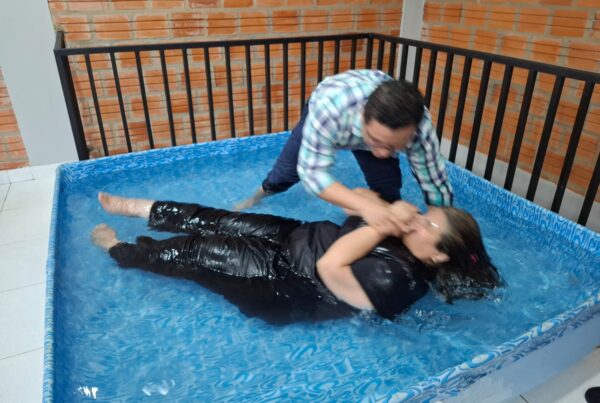One of the most critical decisions you can make in ministry is how you steward pain. Seasons of pain can generate cycles of destructive personal patterns, but pain can also be a furnace of refinement (Prov. 17:3; 1 Pet. 4:12–19).
I have not known a more painful period in my fifteen years in ministry than this last season. I’ve witnessed my husband, a lead pastor, honorably carry responsibility and prayerfully consider decisions in a tumultuous year of no-win scenarios. His pain became my pain. But how I chose to respond to this pain became an opportunity for me to honor God.
To steward pain well, it helps to consider our posture. In painful times of ministry, I’ve been drawn to three postures toward my role and calling as a pastor’s wife.
1. The Posture of Resentment
When ministry feels too costly, we can mentally vacate our role for the “greener grasses” of a simpler life. We justify our distance thinking, That’s your thing; I’m going to go do my own thing. When I haven’t allowed God to meet me in my pain, resentment has crept in to take root. Bitterness and resentment lead to an adversarial relationship with the people of God. If left unattended, you can feel resentment toward your role, the church, and even your husband.
The role of the pastor’s wife doesn’t come with a job description, but it does come with an incredible amount of expectation. This ambiguity can amplify our insecurities. Click Para TwittearWe believe hardening our hearts toward our role will protect us from the pain of ministry, but it doesn’t produce the happiness or safety we want. Resentment can be an outward expression of doubting God’s goodwill and kindness toward our marriages and ministries. It leaves us blinded toward the opportunity to experience the faithfulness of Jesus, our defender.
2. The Posture of Isolation
The role of the pastor’s wife doesn’t come with a job description, but it does come with an incredible amount of expectation. This ambiguity can amplify our insecurities. It’s easy to compare yourself to other pastors’ wives or gifted leaders while downplaying the vital role God has given you. Sometimes I find myself thinking, I don’t know where I fit in this space. I’m not worthy of this task.
Seasons of hardship or insecurity can tempt us to isolate ourselves from the help we desperately need. Self-reliance makes our insufficiency more obvious and leads to further isolation. You may feel the impulse to make yourself small or invisible. Like the servant who has an unhealthy fear of his master and buries his talents in the ground, we choose to believe—sometimes out of pain—that we’re safer when we hide who God made us to be (Matt. 25:25). Hidden away from Christian community, we wither, more prone to the serpent’s lies and unable to experience the joy of the Lord in the task he has given us.
3. The Posture of the Helpmate
The healthiest posture of a pastor’s wife is to embrace the role of the “helper” (Gen. 2:18). Far from a diminutive role, the word “helper” often refers to the help we have from the Lord (Ps. 118:7) or the help that comes from an ally in war. But we cannot hope to be an “ally in war” if we haven’t first received help that can only come from the Lord (Ps. 54:4). We need Jesus for salvation, and we need God’s help to navigate our roles as pastors’ wives. To be a suitable helpmate, Christ must be the one to shape our sense of worth and significance, not the work of our hands (Ps. 62:5–8).
Far from a diminutive role, the word “helper” often refers to the help we have from the Lord or the help that comes from an ally in war. Click Para TwittearMy work as a pastor’s wife has changed drastically depending on my season and schedule and has looked very different from other pastors’ wives I know. My focus has varied from being on staff as an interim children’s minister to being a good companion and listener to my husband, from teaching women theology to having an intentional ministry of prayer while at home with young children. God is continually showing me that my role has far less to do with what I do and far more to do with my willingness to ally and support my husband and the church.
The posture of the helpmate is to remain rooted and firmly fixed in Christ (Heb. 12:1–2). Jesus stands victorious over the battle and now sits at the right hand of the throne of God (Eph. 1:20). We face spiritual struggles in ministry, but we must stand firm in Christ, trusting that he is the victor who fights for us (Eph. 6:13).
Pain in ministry often tempts me to resent suffering and withdraw from the people of God. But I’m comforted because Christ didn’t resent his mission, and he doesn’t withdraw from me. Pastors’ wives, may you draw near to Jesus as you adopt the posture of a helpmate. May you be filled with the hope of our guaranteed future where Jesus will wipe away every tear and make all things new (Rev. 21:4–5).










